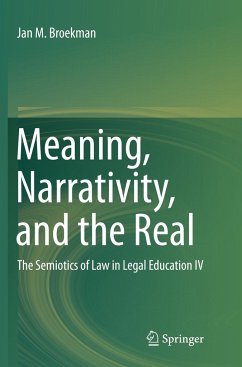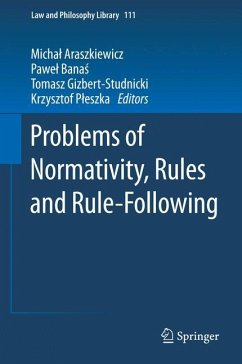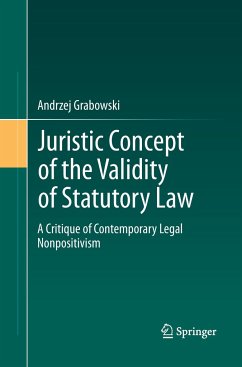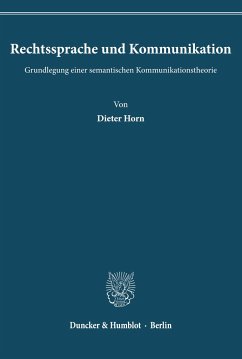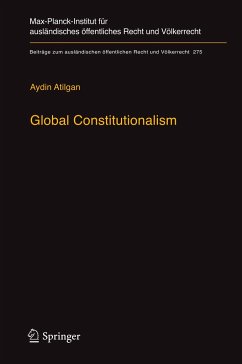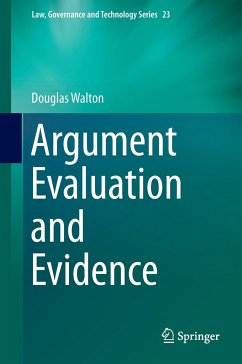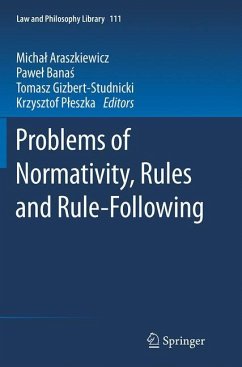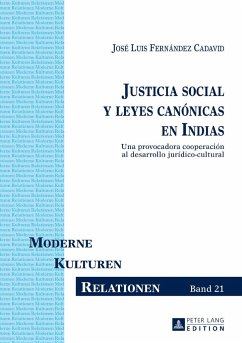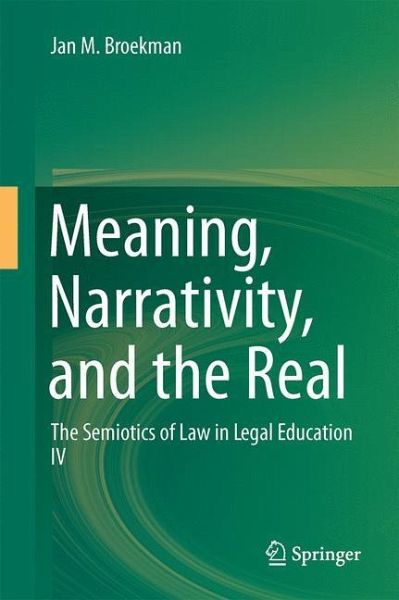
Meaning, Narrativity, and the Real
The Semiotics of Law in Legal Education IV
Versandkostenfrei!
Versandfertig in 6-10 Tagen
38,99 €
inkl. MwSt.
Weitere Ausgaben:

PAYBACK Punkte
19 °P sammeln!
This book examines the concept of meaning and ourgeneral understanding of reality in a legal and philosophical context. Startingfrom the premise that meaning is a matter of linguistic and other forms ofarticulation, it considers the inherent philosophical consequences. PartI presents Klages', Derrida's, Von Hofmannsthal's and Wittgenstein'sexplorations of silence as a source of articulation and meaning. Debatesabout 20th century psychologism gave theattitude concept a pivotal role; it illustrates the importance of the discoverythat a word is globally qualified as 'the basic unit of language'. ...
This book examines the concept of meaning and ourgeneral understanding of reality in a legal and philosophical context. Startingfrom the premise that meaning is a matter of linguistic and other forms ofarticulation, it considers the inherent philosophical consequences. PartI presents Klages', Derrida's, Von Hofmannsthal's and Wittgenstein'sexplorations of silence as a source of articulation and meaning. Debatesabout 20th century psychologism gave theattitude concept a pivotal role; it illustrates the importance of the discoverythat a word is globally qualified as 'the basic unit of language'. Thisis mirrored in the fact that we understand reality as a matter of particles andthus interpret the real as a component of an all-embracing 'particle story'. Each chapter of the book focuses on an aspect of legal semiotics relatedto the chapter's theme: for instance on the meaning of a Judge's 'Saying forLaw', on law students training in varying attitudes or on the ties between lawand language.
Part II of the book illustrates our generalunderstanding of reality as a matter of particles and partitioning, andexamines texts that prove that particle thinking is basic for our meaningconcept. It shows that physics, quantum theory, holism, and modern brainresearch focusing on human linguistic capabilities, confirm their ties to theparticle story. In contrast, the book concludes that partitions and particlesare neither a fact in the history of the cosmos nor a determinant of knowledgeand the sciences, and that meaning is a process: a constellation rather than afixation. This is manifest once one understands meaning as the result ofcontinuously changing attitudes, which create our narratives on cosmos andcreation. The book proposes a new key for meaning: a linguistic occurrenceanchored in dimensions of human narrativity.
Part II of the book illustrates our generalunderstanding of reality as a matter of particles and partitioning, andexamines texts that prove that particle thinking is basic for our meaningconcept. It shows that physics, quantum theory, holism, and modern brainresearch focusing on human linguistic capabilities, confirm their ties to theparticle story. In contrast, the book concludes that partitions and particlesare neither a fact in the history of the cosmos nor a determinant of knowledgeand the sciences, and that meaning is a process: a constellation rather than afixation. This is manifest once one understands meaning as the result ofcontinuously changing attitudes, which create our narratives on cosmos andcreation. The book proposes a new key for meaning: a linguistic occurrenceanchored in dimensions of human narrativity.





